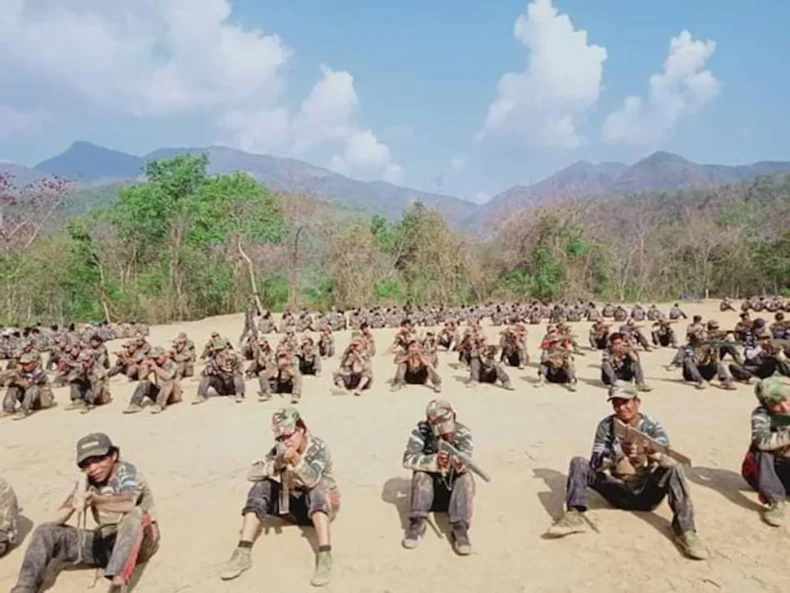The ongoing conflict against journalists in Myanmar under the military coup has raised a very significant issue regarding the freedom of the press.

The 15-year-old reporter from Myanmar has talked about the process of her interview with the guerilla fighter where she disguised her work as a journalist. She talked about the fear she has to face every time she goes for an interview or covers any news, and that is the fear of being arrested. Sui lee wee while talking about the importance of journalism said “With journalism, I do believe that I can represent and can be the voice for the voiceless,”
The ongoing horrors in Myanmar against journalists have raised very serious concerns regarding the freedom of the press because the Press is the important pillar of democracy which works as a wheel of democracy. Whenever there is a social evil lurking or corruption and an operation takes place, the press is the first one to raise a voice against those corrupt practices and operations. Without a free press, democracy can not exist.
Dangerous place for journalism
Myanmar is now one of the world’s most dangerous places for journalists, and Myanmar is on track to be the top jailer of reporters, surpassing China this year. According to the detained Myanmar journalists group, an advocacy organisation 57 journalists are in prison there. According to RSF’s 2022 World Press Freedom Index Myanmar is ranked 176th out of 180 countries.
Press freedom is dying in Myanmar after a one-year of the democracy-suspending coup. Terror of a military campaign in form of intimidation, censorship, arrests, and detentions of journalists has more recently graduated to outright killing. It is an escalation of repression that aims to stop independent media from reporting on the junta’s crimes and abuses.
Junta regime and section 505A
Military rule in Myanmar has impacted the media and press effectively. The junta in Myanmar has created a new provision in its penal code called section 505A which has made it a crime to publish comments that cause fear or spread false news. The junta made amendments to the Code of Criminal Procedure Amendment Law to make offences under sections 505A, 124C, and 124D non-bailable and subject to arrest without a warrant.
It is a vaguely-worded law that the junta keeps using as a pretext to convict journalists, where soldiers have been empowered to decide the fate of journalists. Under this section famous investigative outlets like Myanmar now, DVB, Khit Thit, 7 days and Mizzima have since had their licences revoked.
“The junta regime has effectively outlawed independent journalism in the country,” said Shawn Crispin, the senior Southeast Asia representative for the committee to protect journalists.

What’s happening with the journalists under section 505A?
Military rule has provided the power to arrest and detain journalists. More than 149 journalists have been arrested since the military took power. A political science student – Aung sett has been in hiding ever since the army issued a warrant against him under section 505A. Reporters are killed by the soldiers. Under this section, soldiers are empowered to decide the life or death of journalists. And this empowerment has led to various human rights violations in Myanmar.
Is section 505A limited to journalists of Myanmar only?
Limiting the freedom of the press and media has a series of examples in Myanmar. From revoking the licence of popular investigating outlets like Khit-Thit, DVB, and Mizzima to arresting and shooting journalists have created terror among journalists and this is not limited to the domestic level, for example, a military tribunal sentenced Japanese documentary filmmaker Toru Kubota to 10 years in prison recently.
Danny Fenster, an American journalist was also a victim of this section before former US diplomat Bill Richardson helped secure his freedom. Sithu Aung Myint a reporter and commentator for both local and international media, has just been sentenced to 3 years in prison in Myanmar after 14 months in pretrial detention.

According to Aung Sett, it’s not easy to fight a gun with a pen, but despite the ongoing terror against journalism, torments, and suffering, death of reporters, people are ready to fight against the atrocities and terror with their pens. Oway is an example of it. It is a biweekly publication that specializes in reporting on youth issues and politics, where the writer chose the publication because the print version could still be distributed in places where the internet has been cut off by the regime in its effort to stop the spread of information.












